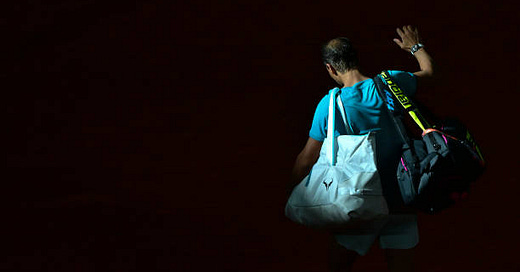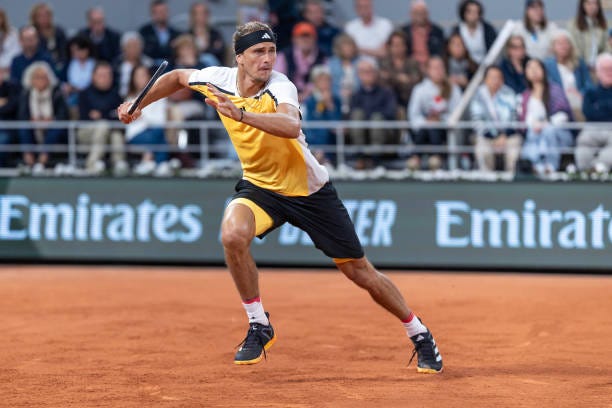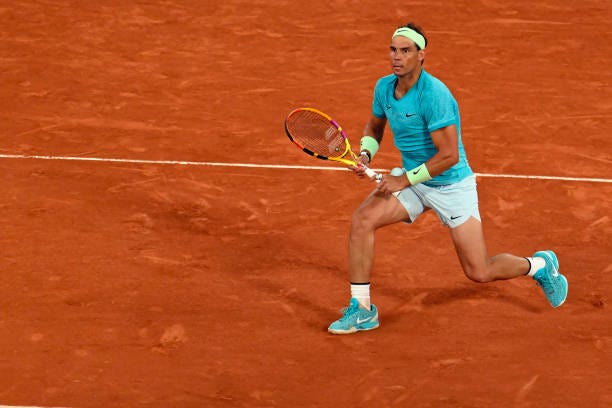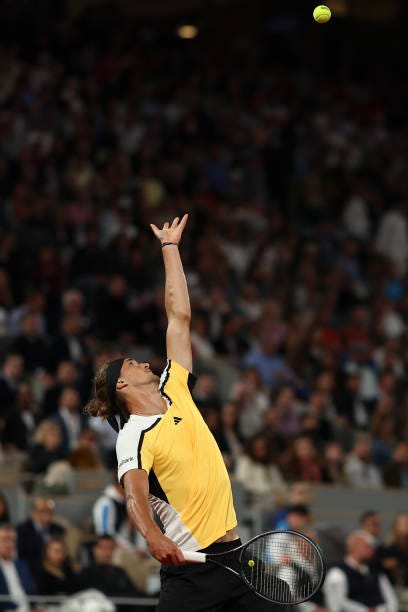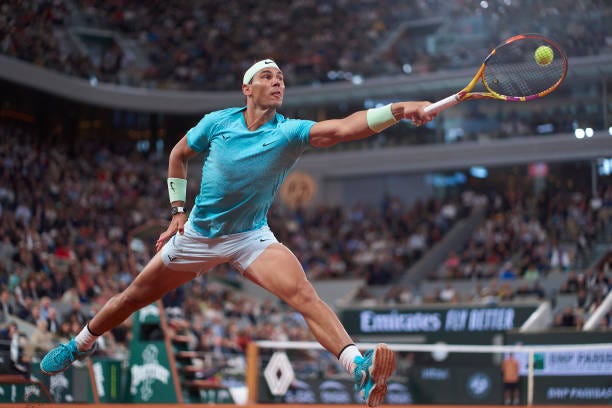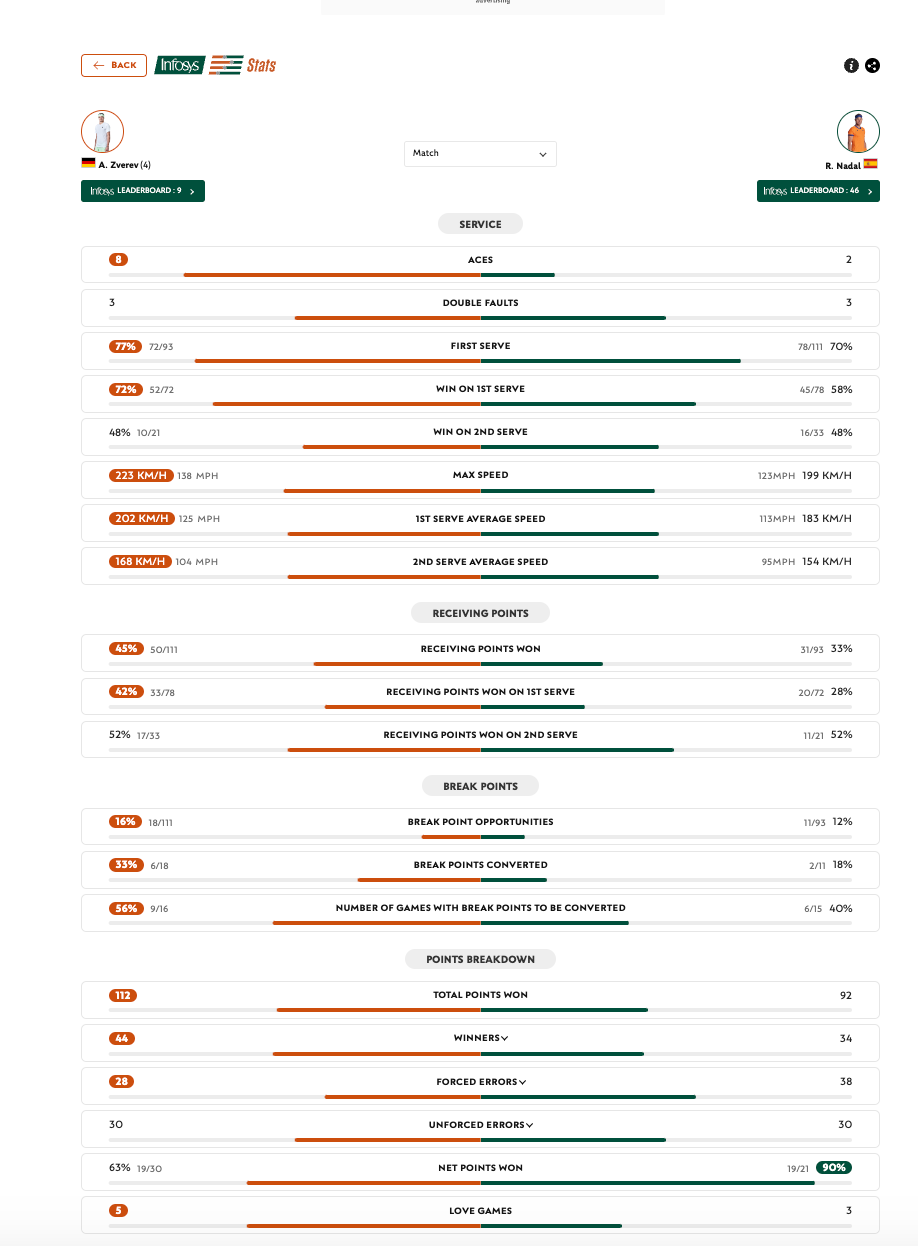PARIS – The king of clay, le roi de Roland Garros, lost in the very first round on Monday.
Rafael Nadal, who blew out the candles on many a birthday cake in Paris, will instead celebrate his 38th birthday next Monday in Mallorca or somewhere else far removed from the grit and tumult of the world’s greatest clay-court tournament.
But Nadal’s straight-set defeat to Alexander Zverev at the French Open did not quite feel like a full-circle moment.
Perhaps that’s because when he started the circle in Paris as a teenager back in 2005, he debuted as the tournament favorite and ran riot over his elders. He defeated No. 1 Roger Federer in the semifinals and then handled his first major final with equal aplomb against Mariano Puerta.
Nadal, lest we forget, was never an underdog in any of those early years as he reeled off the first four of his frankly preposterous 14 French Open titles.
This was genuinely new territory on Monday: the first time he had ever been unseeded at Roland Garros; the first time he had ever been eliminated in the first round of any claycourt tournament (when he lost his opener in Rome in 2008 to Juan Carlos Ferrero it came in the second round after a bye).
But full circle would also imply the end, and though the understandable assumption has been that this is Nadal’s farewell tour it is beginning to seem much more like a warmup act for the farewell tour.
He fed those assumptions last year, in the midst of a forced 11-month injury break, when he announced that 2024 would likely be his final season. He fed them again when he bid a definitive goodbye last month to the Madrid Open.
But lately he has been resisting the word retirement like it is a break point. The season has not gone according to his plan, to his no-regrets personal code of getting the most out of himself win or lose. Because of injuries, he was not able to play in tournaments that he holds dear like the Australian Open, the BNP Paribas Open in Indian Wells and the Monte Carlo Open.
He was not able to build up to the claycourt season as he had hoped, returning on short notice in Barcelona and blowing hot and cold in Madrid and Rome.
Instead, he has been forced to scramble and improvise and train through the Parisian drizzle last week in a race against the clock to try to get as good as he could possibly get before trying to scale the mountain that is Zverev, a 6-foot-6 tower of baseline power who is back in rare form after winning the Italian Open.
It was a very tall order, and Nadal was unsurprisingly unable to fill it, losing 6-3, 7-6 (5), 6-3. He was shaky at the start before settling in. He failed to win a point when he tried to serve out the second set. He was unable to hold off Zverev’s controlled aggression in the final stages of the third.
But Nadal did not run out of inspiration. In his mind, he simply ran out of time, and so he provided no genuine closure on Monday despite all the pent-up nostalgia in the Philippe Chatrier Court.
“I don’t know if it’s going to be the last time that I’m going to be here in front of all of you,” he told the crowd that had cheered him on without fail against Zverev. “Honestly, I am not 100 percent sure, but if it’s the last time I enjoyed it, no? The crowd has been amazing during the whole week of preparation and the feelings I have today are difficult to describe in words, but for me it’s always special to feel the love of the people the way that I felt in the place that I love the most, so merci beaucoup à tout le monde.”
Nadal, whose French remains a work in progress, will almost certainly be back here to play in the Paris Olympics in late July. His ranking might be in the 200s but, after his injury layoff, he has a top 10 protected ranking that would allow him entry into the singles and doubles as long as the International Tennis Federation approves, which the ITF undoubtedly will. Who wouldn’t want Nadal, a global icon and two-time gold medalist, in their Olympics?
His fragile body has been, in his amusing comparison, “a jungle” for the past two years. “You don’t know what to expect,” he said on Monday. “You know, I wake up one day and I found a snake biting me. Another day a tiger.”
(EDITOR’S NOTE: Those are metaphors.)
But there were clearly fewer predators lurking bedside in Paris. The body, at last, felt better, and it looked that way against Zverev as he covered the whole canvas: running around backhands, darting to net with near-perfect timing, slapping forehands on the sprint and even chasing down the occasional drop shot, which has been a new kind of challenge for him this spring. There were uncharacteristic misses, some poor shot selections in that critical tiebreaker. But there was also a great deal of quality for an aging star short on match play.
If he can stay healthy – and who knows if he can – it would no longer be a surprise to see him back for the 2025 French Open, hopefully seeded so he could avoid the likes of Zverev in the opening round. For now, he is 112-4 here with the only losses coming to Robin Soderling, Novak Djokovic (twice) and Zverev.
“In terms of what’s driving me, what’s the force behind driving me, I’m a simple guy,” he explained. “I enjoy what I do. I am passionate about sport. I am passionate about competition. I like to practice. I like to play tennis. I’m in a different moment of my personal life, too, traveling with my son and wife. I am enjoying these moments that will not come back.
“So if I keep enjoying doing what I am doing and I feel myself competitive and healthy enough to enjoy, I want to keep going for a while. I don't know for how long, but I want to keep going for a while, because they are having fun, I am having fun, and I need to see, I need to give myself a little bit longer chances to see if my level is growing and my body is holding, and then let's make a decision.”
Good for him. It’s his career, his craft. He will never be better at anything else (except perhaps parcheesi), and if he wants to follow his friend Roger Federer’s advice and “squeeze all the juice out of the lemon” then why begrudge him the full journey if he can accept the bumps in the road and dents in the chassis?
There are all kinds of end games.
“I hope he will play one more year and have a proper goodbye,” said Sven Groeneveld, a veteran coach who worked with Maria Sharapova in her final years on tour.
But if the Zverev match does turn out to be Nadal’s last French Open match, at least Nadal did himself proud even if the scoreline was hardly in harmony with his legacy of dominance.
“If it's the last time that I played here, I am in peace with myself,” he said. “I tried everything to be ready for this tournament for almost 20 years. And today and the last two years I have been working and going through probably the toughest process in my tennis career with the dream to come back here, no? At least I did. I mean, I lost, but that's part of the business.“
This was a straight-setter that still required more than three hours for Zverev to complete: a straight-setter in which the winner had 44 winners and 30 unforced errors and the loser had 34 winners and 30 unforced errors.
It was, in general, full of excellence and acrobatic athleticism even if Zverev sometimes ripped shots into the net from close range and Nadal struggled to gain control of signature strokes like his down-the-line backhand.
But though Zverev might not have required top gear to win the first set, he definitely needed it to win the second and close out the match in style in the third: ripping crosscourt backhands with full power and conviction that landed repeatedly on the sideline, leaving Nadal spreading his arms in disbelief and howling at the cool precision of it all.
Zverev was not the focus of the day with Nadal across the net, but he found what he was looking for: finishing the deeply demanding business he started in the 2022 semifinal under the same closed roof on center court. Zverev could not complete that ferociously contested duel, retiring late in the second set after tearing ligaments in his ankle.
This was his second chance, and he made the most of it, dominating most of his service games and playing relentlessly proactive, opportunistic tennis by attacking short balls and raising his level and metabolism on the critical points. He also was - no surprise - the superior server, winning 72 percent of his first-serve points to Nadal’s 58 percent.
Zverev won the Olympic singles gold in Tokyo and the ATP Finals twice. Those are big titles, but he has been passive before when it mattered most in the majors. He was in a more resolute place this time, and he needed to be with the crowd cheering for his double faults and unforced errors and chanting “Rafa” and “Vamos”.
It was a road game for sure.
“Deservedly so, right?” Zverev said. “Rafa's won the tournament 14 times. For sure it is special for everyone with the uncertainty of whether he's going to come back or not. But I do feel like now starts a different tournament. I was preparing for that match, and I think everybody was preparing for that match since the draw came out as if it was the final. But at the end of the day it was the first round, which is a weird circumstance.”
It will also be a little strange if Nadal announces post-Olympics that this was in fact his last French Open, and some of us who write for a living realize that we did not properly mark the moment with chunky paragraphs encapsulating one of the greatest achievements in not just tennis but sports.
Fourteen is a number worthy of full exploration (I’ll do it in my book, I promise). But Nadal would clearly prefer that we all show some patience, one of the cardinal virtues in claycourt tennis after all.
“I think if they want to honor me, there will be another time for that,” he said of Roland Garros. “If I come back to play next year, we can do the ceremony that needs to be done, and if I don’t, then Mallorca is not too far away for me to come.”
Nadal is a practical champion, after all, and a pure competitor: one more interested in the hunt than the kill; the chase than the reward.
A big step slower with the youngsters gathering momentum, the challenge has never been greater.
For now, he is leaning toward skipping Wimbledon and the grasscourt season to avoid the injury risk of changing surfaces. But bring on the Olympics and more Roland Garros clay.
“He will be a pain to play,” Groeneveld said.
He certainly knows his way around the place.
CC


